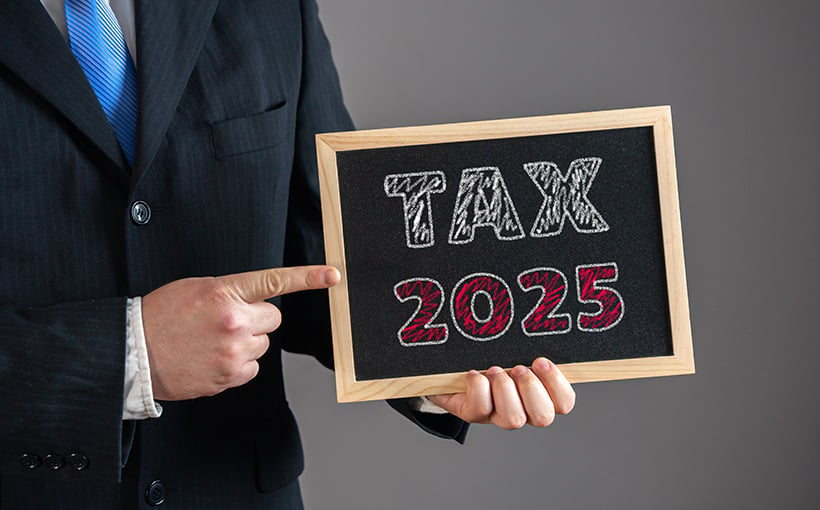# Trump Administration Tax Changes and Potential Real Estate Effects
**By Connect CRE**
Presidential election years often bring uncertainty to the commercial real estate market as buyers and sellers await policy clarity. According to a recent report from Deloitte, concerns about the Trump administration’s potential tax policy changes remain a significant factor in this uncertainty.
Deloitte’s 2025 report, *Top Financial Risks to U.S. Commercial Real Estate Firms According to Industry Respondents*, ranked tax policy changes as the fifth-most pressing concern, following interest rates, cost of capital, cyber risks, and regional political instability.
*”This year’s rising concern about tax policy doesn’t mean it wasn’t an issue in prior years—it was just a lower priority behind challenges like workforce management, public health mandates, or supply chain disruptions,”* explained Tim Coy, real estate research manager at the Deloitte Center for Financial Services.
Coy also noted that North American respondents in Deloitte’s 2023 outlook survey highlighted tax policy changes as a major concern. *“We followed up on this issue, and respondents indicated that their concerns were mainly about transfer pricing and profit sharing, potential tax rate increases, and reductions in tax allowances and benefits,”* he said.
## What’s Changing in 2025?
Unlike 2023, this year marks the expiration of several provisions from the Tax Cuts and Jobs Act (TCJA) of 2017. *“We anticipate that changes to corporate tax rates and qualified business income deductions will be the most impactful to the commercial real estate industry,”* Coy said. Even if past tax policies were beneficial to the CRE sector, proposed revisions and expansions could require adjustments. *“Renewal will likely not be a simple copy-and-paste,”* he added.
Several factors highlight an increased focus on tax policy within the real estate industry:
– The ongoing implementation of Pillar Two, the 15% global minimum tax. While not yet U.S. law, U.S.-based multinational headquarters could face additional levies.
– International elections and their long-term implications for fiscal policy.
– The expiration of significant portions of the U.S. tax code by the end of 2025, making it highly likely that Congress will pass major tax legislation this year.
Congress and the administration will also need to address sustainability tax credits and incentives established by the Inflation Reduction Act of 2022, as well as the future of the Opportunity Zone program, which is set to expire on December 31, 2026.
## How CRE Leaders Can Prepare
Given the potential for substantial tax policy shifts, Deloitte’s report suggests that commercial real estate firms should:
– Remain focused on long-term growth strategies.
– Stay informed about legislative developments in Washington.
– Plan proactively to mitigate financial risks.
Coy emphasized that these tax policy decisions will take shape before the end of 2025, making it crucial for CRE leaders to prepare now. *“While it may not seem like a top priority yet, changes associated with the TCJA expiration will come. Proactive planning now can prevent a last-minute scramble to adapt,”* he advised.
As the industry continues to navigate these uncertainties, staying ahead of tax policy changes will be critical for real estate investors and business leaders.
—
This article first appeared on *Connect CRE*.
About the Publisher:
Steve Griffin is based in sunny Palm Harbor, Florida. He’s an accountant by profession and the owner of GRIFFIN Tax (www.griffintax.com) and REVVED Up Accounting (www.revvedupaccounting.com). In addition, Steve founded Madison Avenue Technology (www.madisonave.tech). With a strong passion for commercial real estate, he’s also dedicated to keeping you up to date with the latest industry news.



